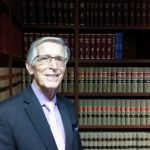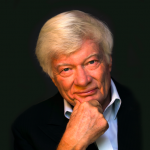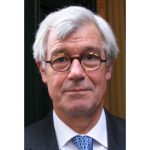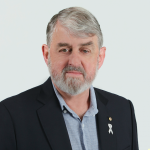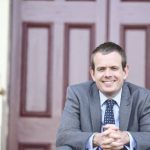A Career of Firsts: An Interview with Former NSW Magistrate Pat O’Shane
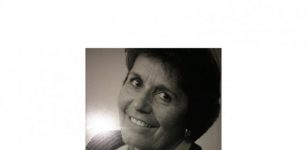
Former NSW magistrate Pat O’Shane has had a pioneering career, marked by a series of firsts. The Kunjandji woman, who grew up in North Queensland, became the first female Aboriginal teacher in the state.
After teaching at Cairns High School for eight years, Ms O’Shane moved to Sydney to study at the University of New South Wales and became the first Indigenous Australian to earn a law degree. And in March 1976, she was the first Aboriginal person to be admitted to the bar.
An outspoken magistrate
And Ms O’Shane continued on to become Australia’s first Indigenous magistrate. Between 1986 and 2013, she served at the NSW Local Court in Sydney. And she went on to be described as Australia’s fiercest magistrate.
During her 26-year career at the bench, she was known for speaking her own mind. Ms O’Shane believed in seeking justice for people, especially for those who hadn’t had it before.
“Law is not the same as justice and justice is certainly not the same as law,” she told Fairfax Media at the time of her retirement. “My priority was in fact to get justice according to the law.”
Indeed, a controversial decision in a case – where she asked a paramedic the question, “you don’t like blacks?” – led to an investigation into her conduct by the NSW Judicial Commission.
Early life
Patricia O’Shane was born in Mossman in 1941. Her mother, Gladys, moved the family to Cairns so her daughter could gain a good education. Pat ended up being the only Aboriginal child in her age group graduating from her school and went on to study at the Teacher’s College and the University of Queensland.
Ms O’Shane says her passion for social justice was strongly influenced by her mother Gladys.
And the list continues…
After becoming a barrister, Ms O’Shane went on to work for the Aboriginal Legal Service in Sydney and Alice Springs, as well as working as a patient advocate at Rozelle Hospital.
And in November 1981, she was appointed the head of the NSW Ministry of Aboriginal Affairs, becoming not only the first Indigenous Australian, but also the first woman to become head of a government department in the country.
The Deadly Award
Pat was presented with the Marcia Langton award for lifetime achievement in leadership at the Deadly Awards in September 2013.
“This is an Aboriginal woman who blazed a path for others to follow. Because many of her achievements have been firsts for her people, she is a genuine and inspiring role model for others,” said a spokesperson for the awards, which recognise the achievements of Australia’s First Peoples.
Sydney Criminal Lawyers® spoke with Pat O’Shane about a career that has been marked by courage, controversy and a passion to see justice carried out.
Ms O’Shane, you achieved a lot of firsts in your lifetime. You were the first female Aboriginal teacher in Queensland, the first Aboriginal person to earn a law degree and to become a barrister in the country. And you were also Australia’s first Indigenous magistrate.
Looking back, what would you say gave you the drive and determination to achieve such a pioneering career?
In one word: Injustice. And racism of course, as far as Indigenous Australians are concerned. But, actually in fact, in so far as a lot of people of different ethnic backgrounds, especially nowadays, for them racism is a big issue and injustice is part of that.
In fact, injustice is the umbrella and there are a whole lot of issues like that.
Injustice covers poverty as well. I grew up in a poor family, in very poor circumstances. I mean, it all goes together.
So injustice in a word.
You went on to study law at the University of NSW and later you were admitted to the NSW bar.
What led you into a career in law?
It was actually an incident that occurred outside of Cairns. My husband and I lived in Cairns. I grew up there. But Mick was appointed to a school in Cairns, when he graduated from Teacher’s College.
And because we were active and we were the only educated people around in the Indigenous community, people used to come to us with complaints about certain matters, including police.
There had been an incident on a little reserve outside of Mareeba, which is on the Atherton Tableland, west of Cairns. It involved a couple of police officers – and apparently this was a regular Friday night sport for these people – going to the reserve on this particular Friday night and bursting into one of the huts – they only lived in little huts. They assaulted two women. One was only actually fifteen years of age, but she was physically developed and very mature.
The people came down to tell us about it. They were really concerned about what we could do. I was active in the Federal Council for the Advancement of Aborigines and Torres Strait Islanders in Cairns and the president of FCAATSI – he was the national president, as well as being president of the local level – Joe McGinness came up to Mareeba and we went and spoke to the inspector of police.
What followed was those two fellows were charged with assault. When I sat in the little court and listened to the proceedings – they were convicted fortunately – it was as though they were the innocent players in the whole incident.
Finally, they took an appeal in the court. The court upheld their convictions and they were sentenced to three years hard labour.
When I watched all those proceedings, I saw how the court was conducted and listened to how these women were treated in court – notwithstanding the results which were favourable from our point of view – nevertheless, I was really angry about it. And that stayed with me for a long time.
When I came to NSW, I actually wanted to study something else. But it was suggested to me that I study law and I remembered that particular incident because it had a profound effect on me. And I said, “Yes, I’ll take up the graduate course in law at the University of NSW.” Which meant I spent three years studying law there, graduated and went to the bar.
I worked in the Aboriginal Legal Service in NSW and also in the Northern Territory and then back in Canberra. So that’s what took me into law.
That was actually my next question. You worked for the Aboriginal Legal Service. Just how important is this service for Australia’s First Peoples?
At that time, I think it was very important. It was established by Indigenous communities. Redfern was the first one and that was done with the assistance of lawyers, professors and lectures from the University of NSW.
It started off really keeping a cop watch. Watching police bashing up blacks at Redfern every weekend. So that’s where it started and then it grew.
Nowadays, well since the Howard government, the Aboriginal Legal Services have been fairly constrained – lack of funding and also some of them were taken over by non-Indigenous people at the behest and complicity of the Commonwealth government.
So nowadays, there isn’t that same philosophy involved. It’s just like any other legal aid service essentially.
Between 1986 and 2013, you were a magistrate serving at the NSW Local Court in Sydney. What would you say you achieved in your time as magistrate?
Well, I kept a lot of people out of gaol. And in fact, I talked about alternatives to gaol, especially for example, for minor drug matters, which is what you get in the Local Court. I believe in rehabilitation and believe it or not, it was my initiative that eventually led to the Drug Court.
The thing one of my colleagues said to me was, “I’m very impressed with what you’ve done with this young woman.” “I didn’t do it,” as I used to say to these young people, and even older people. “You did it. I gave you the opportunity to do it.”
But mind you, I kept a very strict eye on them and I made clear to them that this is what they exactly had to do. They were under the control of the court now. But it was better than going to gaol.
I did the same in respect to mental health. I thought that people in the mental health system were being treated abominably by the psychiatric profession. And that was another issue that I took up.
So I can truthfully say that I very seldomly, if ever, get any acknowledgement for the work that I did. But I certainly changed ideas about how we should deal with defendants before our courts, certainly at the Local Court level.
I emphasised rehabilitation and in fact, that’s still the case today. They go off to Drug Court. They can stay out of gaol.
Nowadays, most mental health cases are dealt with in the community and they stay out of institutions. The fact that some still require institutional care is not the issue. It is that they have very, very serious mental illnesses and they do need that care. ‘
Another thing that I was very much involved in was changing the whole approach to child care and protection. I believe that children should stay in their communities, with their families if possible. I always recommend that they undergo training programs. And in fact, that’s been adjusted now by the Family Court, which sends people off to do parenting courses.
So I just planted seeds here and there. I didn’t go out with horns or trumpets, making a great noise about it. I just got on with my work. I actually never did seek accolades. That’s not me.
I really want other people to be able to live a good life. And I don’t mean by that being pious and righteous and all that kind of stuff. But just to ensure that they are not harassed by police, subjected to prejudicial treatment and so forth.
Aboriginal and Torres Strait Islander people are highly overrepresented in the Australian criminal justice system. Indigenous people make up 3 percent of the overall population, but 28 percent of the prison population. And the number of Indigenous people being incarcerated continues to increase.
What are your thoughts on how the justice system is treating Indigenous Australians?
As I said at the outset, injustice is the greatest problem in our society. And there’s no justice in a society which has gone far-right and really punitive. In fact, even vicious in the way it treats people who are not in the cohort, which rips off millions and billions of dollars.
There’s this huge split in our society. Australia used to be known as an egalitarian country. It is no longer that.
One person who pushed that along with great vigour was John Howard. And he was totally focused on doing that. There’s no question that successive governments were also – including by the way, the Labor government, which made a half-hearted effort if that. Because they still played to the developers, big business, big capital, including overseas investment and so forth. That’s going on at haste.
They are making billions of dollars, certainly in the Anglophonic world. And that has an enormous impact on those who are at the lower end of the socioeconomic scale. And especially with Indigenous people, of course, that stands to reason. It’s not hard to fit the pieces in the jigsaw.
Towards the end of your career, your trial judgements came under scrutiny, after two ANU academics conducted an examination of your cases that were appealed in the NSW Supreme Court.
How do you feel about that controversy today?
I don’t feel anything about it. I didn’t feel anything about it at the time.
I thought that they were two would-be academics. They actually didn’t do a good job. And it isn’t actually how many matters of mine were appealed. The fact of the matter is, they didn’t actually carry out a complete research.
They were piss weak, as far as I was concerned on that score.
And I was Chancellor of the University of New England. I have been a university teacher. And I have actually reviewed PhD theses and I have very hard academic principles, when it comes to achievement.
I see a lot of really, really poor work – so poor that the grammar is hopeless, sentence construction, these things hanging in the air. And in one PhD thesis which I reviewed the writer didn’t even spell the names of a couple of her informers correctly.
I can write you chapter and verse about academic work. I’ve been there. I’ve done that. I’ve overseen work by others. And I know how poor it can be.
So the fact that they did that, I don’t think it amounts to a hill of beans.
In 1998, you were elected to the Australian Constitutional Convention, which was a body set up to consider the issue of Australia becoming a republic. The convention supported the move to become a republic, however, the Australian public voted against this in a referendum the following year.
What do you think about Australia still being a constitutional monarchy in 2017, with the Queen of England as the head of state?
I think it’s infantile. And I think people who promote it are a handful in the community. John Howard was a big player in that convention and he was working overtime to ensure that any decent democratic proposals did not get up, I can tell you.
Didn’t Howard actually set up that convention?
Well, yes he did. What’s your point?
Perhaps that in setting up such a convention he was actually wanting to see the republic go down.
Yes, absolutely. He’s a royalist through and through to his toe nails. He is anti-democratic, always has been. By the way, from a long, long way back I’ve watched his political career. He’s racist. You name it, he’s a bad arse.
And my last question for you today, at the moment, there’s a focus on constitutional recognition: the move to recognise Aboriginal and Torres Strait Islander people in the constitution. But many Indigenous people think this doesn’t go far enough and what is really needed is a treaty with the various Indigenous nations.
Where do you stand on this issue?
Constitutional recognition doesn’t amount to anything. I mean talk about anodyne. What does that mean?
The present constitution, by the way, does not set out any rights and responsibilities on the part of anyone, whosoever, not even the government for god’s sakes. John Howard took us into a war purely on his whim. Nothing else. Absolutely nothing else. So the constitution needs to be ditched.
If we’re going to do anything with the constitution, ditch it. And let’s sit down and work through a democratic process. With our political system as it is running at present that is a dim, dim light in the far universes. We won’t get one in a hurry.
As for a treaty, I’d be interested again in what sort of terms and who the treaty would be with from the Indigenous side.
Because in fact, Indigenous Australia was never a nation. There were approximately – there are various suggestions or propositions – but it is generally accepted, that there’s approximately 600 different language groups in the country.
Now since the conquest, things have gone haywire, no question about that, but that’s the first thing that we would need to sort out.
The question comes from Indigenous people who are close and snugly with the conservative forces in this country. That tells you something right away to the likely outcome of such a move. It’s just not going to be likely at all, until we get our acts together and be very, very clear about the law that applies to such things.
People raise the issue of sovereignty, well sovereignty is an imperialist term and we need to be clear about what we are talking about. People throw labels around, when they don’t really understand what they are.
If we want to redefine something, by all means, let’s redefine something. But I mean not even the High Court could redefine proprietary interest in land in the Mabo case.
So it’s a pretty tough question all round.
Ms O’Shane, thank you very much for taking the time out to speak with us today. It has certainly been an honour to speak with someone with such an illustrious career.
Well, thank you. That’s very nice of you.
Receive all of our articles weekly
Author

Paul Gregoire

